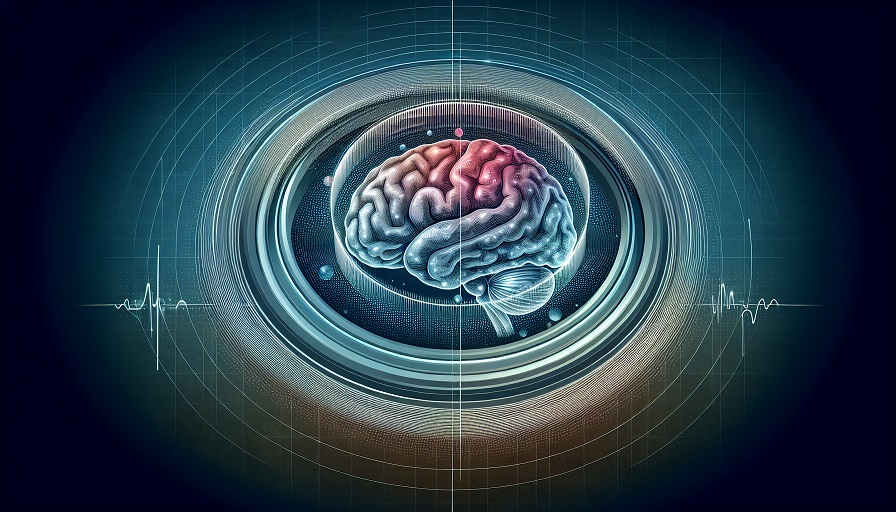
Imagine your brain as a busy city that never sleeps. Thoughts are like cars, emotions are like weather, and habits are like construction crews quietly reshaping the streets. Every choice you make, from how late you stay up to what you eat for breakfast, sends a message to that city. Over days, months, and years, those messages add up.
The remarkable part is this: your brain is not fixed. It constantly rewires itself based on what you repeatedly do, feel, and focus on. That means your lifestyle is not just something that affects your waistline or energy level. It is a long term remodeling project for your brain.
Once you see your choices through this brain lens, small daily decisions begin to feel more meaningful. You are not just going for a walk or going to bed on time, you are shaping the way your brain will work for you in the future.
Contents
- Neuroplasticity: Why Your Brain Is Never Really “Finished”
- Sleep Habits And The Night Shift Inside Your Brain
- What You Eat And Drink: Fuel For Your Brain City
- Movement: Exercise As A Gift To Your Brain
- Stress, Screens, And The Overloaded Brain
- Relationships, Learning, And Emotional Climate
- Shaping Your Brain On Purpose
- Your Life Is Your Brain’s Training Program
Neuroplasticity: Why Your Brain Is Never Really “Finished”
For many years, people believed that the brain stopped changing once you reached adulthood. Now we know that is not true. The brain remains adaptable across the lifespan. It creates new connections, strengthens old ones, and lets unused ones fade.
Habits As Brain Pathways
Think of habits as paths through a forest. The more often you walk a certain path, the clearer and easier it becomes. The same thing happens in your brain. Repeated thoughts and behaviors strengthen certain connections, making them feel more automatic.
This is why it can feel hard to change. Your brain is simply very good at running the same routes it has practiced. The encouraging part is that with new, repeated choices, you can build new paths too.
Your Brain Reacts To Patterns, Not One-Time Events
One late night or one stressful day will not break your brain. What shapes it most are patterns. Regular sleep or constant sleep loss, daily movement or long term sitting, steady support or chronic conflict. These trends tell your brain what kind of world it lives in and what it should adapt to.
That is why lifestyle choices matter so much. They are the patterns your brain uses as a guide.
Sleep Habits And The Night Shift Inside Your Brain
Sleep is often treated like spare time you can cut when life gets busy. From a brain perspective, it is more like scheduled maintenance. Skip it often enough, and the system starts to glitch.
What Happens In Your Brain When You Sleep
During quality sleep, your brain:
- Helps clear out waste products that build up during the day.
- Strengthens important memories and trims away unneeded details.
- Resets certain chemicals that influence mood, focus, and motivation.
When sleep is short or broken, these processes are cut short. Over time, that can show up as brain fog, irritability, and difficulty concentrating.
How Sleep Choices Shape Your Brain Over Time
Years of irregular or poor sleep are like years of skipped maintenance. The brain has to work harder just to keep up. Simple tasks feel draining, emotions run closer to the surface, and memory can feel less reliable.
On the other hand, when you consistently protect your sleep, you give your brain a chance to repair. Over months, many people notice that they think more clearly, handle stress better, and have more emotional balance.
What You Eat And Drink: Fuel For Your Brain City
Your brain is always on. It needs steady fuel, not just quick bursts. The food and drink you choose each day affect how well your neurons, the brain’s communication cells, can do their jobs.
Blood Sugar Swings And Brain Fog
Meals that are high in sugar and refined carbohydrates can cause fast rises and falls in blood sugar. Your brain depends on a stable supply of energy, so these swings can lead to sudden drops in focus and mood.
When this pattern repeats day after day, your brain spends a lot of time in survival mode, just trying to stay level. You may feel tired, scattered, and irritable more often.
Nutrients Your Brain Relies On
The brain uses building blocks from your food to repair cells, make signaling chemicals, and maintain its structure. Colorful fruits and vegetables, healthy fats, protein, and plenty of water all support this work.
Over time, a more nutrient rich diet can support better mood, sharper thinking, and more stable energy. It does not have to be perfect. Slow, steady changes, like adding a vegetable to most meals or drinking more water, can make a real difference for your brain.
Movement: Exercise As A Gift To Your Brain
Exercise is often seen as something you do for your heart or weight. The brain quietly benefits just as much, sometimes more.
Movement Increases Blood Flow And Growth Signals
When you move your body, you increase blood flow, which brings oxygen and nutrients to your brain. Movement also supports chemicals that help brain cells grow new connections and stay healthy.
That is one reason people often feel mentally clearer or calmer after being active. Their brains are literally receiving a fresh wave of support.
How A Movement Habit Shapes Your Brain Over Time
You do not need intense workouts to benefit. Regular walking, light strength training, gardening, or dancing can all help. Over months and years, consistent movement is linked with better mood, improved thinking, and more resilience to stress.
A long term lack of movement, on the other hand, is tied to higher risk of depression, cognitive decline, and slower processing. It is like letting a powerful engine sit in the garage without ever turning it on.
Stress, Screens, And The Overloaded Brain
Modern life exposes your brain to constant streams of information. Emails, messages, news, and notifications keep attention on high alert. On top of that, real life stresses like finances, caregiving, and health worries can keep your nervous system on edge.
Chronic Stress Rewires The Brain
Short bursts of stress are normal. The problem is when stress never really turns off. In that state, the brain’s alarm systems stay activated, and parts of the brain involved in planning and memory can get less support.
Over time, this can leave you feeling jumpy, tired, and forgetful. It can also make it harder to shift out of worry and into problem solving.
Screen Habits And Attention
Screens are not evil, but constant multitasking and endless scrolling can train your brain to crave quick hits of novelty. That makes it harder to stay with deeper work, conversations, or quiet activities.
If this becomes your brain’s daily pattern, it adjusts accordingly. Long form focus can start to feel uncomfortable, even though it is exactly the kind of focus that helps you learn and create.
Relationships, Learning, And Emotional Climate
Lifestyle is not only about what you eat, how you move, or how you sleep. It also includes who you spend time with and what you feed your mind.
Connection As Brain Nutrition
Supportive relationships are powerful for brain health. Warm connection helps reduce stress signals and increases chemicals associated with safety and bonding.
If your daily life includes moments of genuine connection, your brain receives repeated reminders that you are not alone. Over time, this can buffer the effects of stress and support emotional stability.
Learning Keeps Your Brain Flexible
Learning new skills, whether it is a language, instrument, craft, or hobby, encourages your brain to form new connections. It keeps your mental “roads” from becoming too rigid.
You do not have to pursue formal education to benefit. Even small challenges, like reading about new topics or trying new activities, can help your brain stay flexible and engaged.
Shaping Your Brain On Purpose
Knowing that your brain responds to patterns opens up an important question: what kind of brain are you building with your current lifestyle?
Small Steps, Big Brain Impact
You do not need drastic change to start supporting your brain. Even small adjustments, repeated over time, send strong signals. For example:
- Going to bed thirty minutes earlier on most nights.
- Adding a short walk to your day.
- Drinking water before that second or third caffeinated drink.
- Setting your phone aside for ten minutes of real quiet.
Each small choice is like a tiny vote for the kind of brain you want in the future.
When Professional Brain Support Helps
Sometimes lifestyle changes are not enough on their own. If you are dealing with severe mood changes, major memory problems, or long term attention issues, it is wise to involve professionals.
Many clinicians now train specifically in brain health so they can help you connect lifestyle with other tools, such as therapy, coaching, or medical treatment. Working with someone who understands the brain can help you create a plan that feels realistic and targeted, not overwhelming.
Your Life Is Your Brain’s Training Program
Every day, your brain is paying attention to how you live. It adjusts its wiring and chemistry based on what it sees. You do not control every factor, and you are not to blame for everything your brain is going through. At the same time, your choices matter more than most people realize.
Sleep, food, movement, stress, screens, relationships, and learning are not just lifestyle details. They are the daily instructions that guide how your brain grows and functions over time.
When you start seeing your lifestyle as a training program for your brain, change stops feeling like punishment and starts feeling like investment. You are not only trying to feel better this week. You are building a brain that can carry you with more clarity, resilience, and joy into the years ahead.

